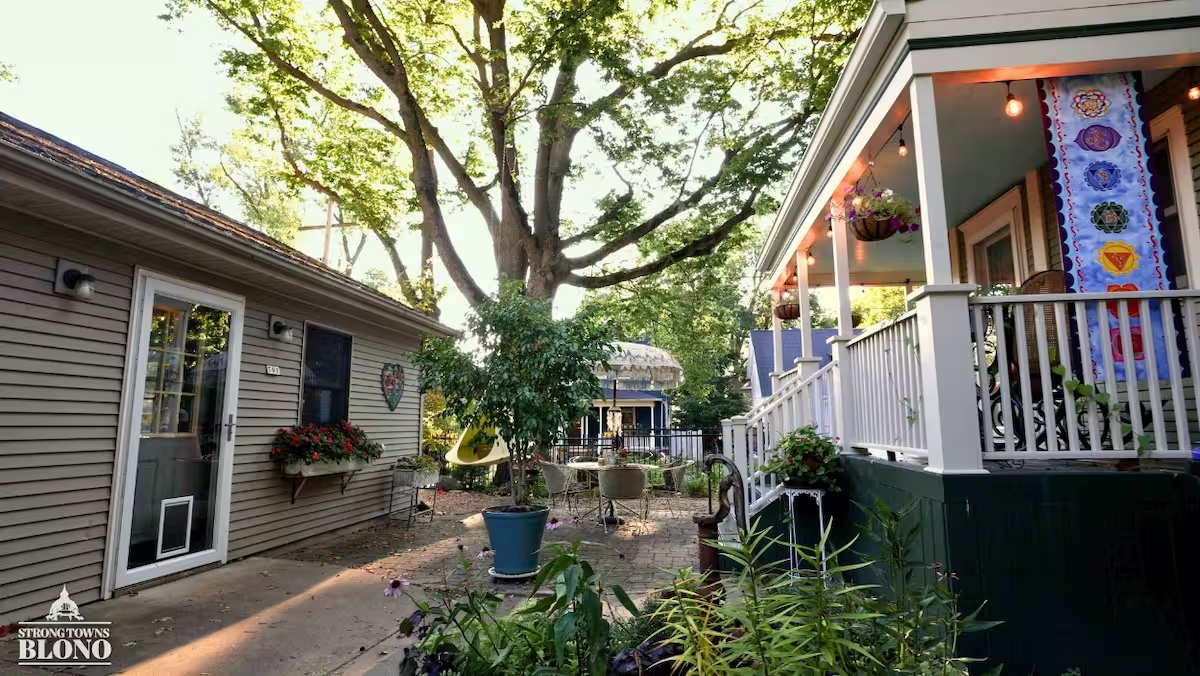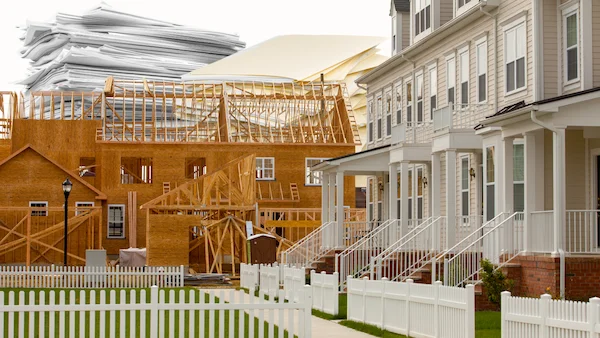The city of Bloomington, Illinois, passed major housing reforms at a council meeting earlier this month. ADUs can now be built in any residential district with a special permit. Rowhomes that previously could only be rented or sold as condos can now be built and sold like any other single-family home. Owner-occupied shophouses were relegalized in downtown Bloomington. Finally, the city committed additional staff time to studying opportunities for adding missing-middle housing.
“It was one of the most consequential council meetings on housing in the past 10 years,” said Noah Tang, a Bloomington resident and leader of the Local Conversation Strong Towns Blono.
This kind of breakthrough doesn't happen by accident. Strong Towns Blono advocated for these changes in a coordinated campaign that combined research, relationship-building, and strategic public engagement. Over the weeks leading up to the pivotal council meeting, the group met directly with city planners and council members, as well as using public comments to push for meaningful change.
As part of this campaign, Strong Towns Blono created a mini-documentary featuring Julia Sutherland, a local resident whose attempts to build a backyard cottage — also known as an accessory dwelling unit or ADU — had been stalled by outdated zoning rules. The video explores how a backyard cottage would provide an ideal home for Julia’s aging mother. As Julia walks through the partially completed cottage, she shows how a small, 400-square-foot space can be transformed into a comfortable apartment without sacrificing dignity, privacy, or beauty.
Strong Towns Blono’s video humanized the housing issue, giving city officials and staff a concrete, relatable example of how their policy decisions affect real people. The group also helped coordinate tours of Julia’s property for four swing-vote council members, allowing them to experience the project in an even more personal way.
“We got many thank yous from city council members and planning staff for helping clear the water around the housing reforms by humanizing and vizualizing it,” Noah said.
For other groups who want to make a similar impact in their communities, Noah recommends the simple approach. “Get a team together, write a script, just do it! Our first videos were shot on iPhones and we iterated from there.”
That focus on simplicity remains in their current video process. Strong Towns Blono used the expertise, equipment, and local connections they already had to produce the mini-documentary. Shea Grehan, a photographer for Illinois State University who volunteers with the group, conducted the interview and did most of the editing, while Noah helped with planning and directing. They also consulted with city planning staff to confirm what parts of the zoning code were preventing the cottage’s construction. All told, the project took about eight hours to complete.
Strong Towns Blono identified barriers, built relationships, and used the resources they already had to create compelling content that moved hearts and minds. In doing so, they proved that ordinary people doing small things can reshape the rules that govern their communities. If you want to do the same thing in your place, click here to find a Local Conversation near you.
Julia Sutherland is a great example of a small-scale developer who wants to meet her community’s housing needs. When cities empower these people, they can revolutionize their housing markets, making prices affordable while respecting neighborhood context.
To learn how your city can empower these developers, sign up to receive the second housing toolkit, “Who Will Build the Housing-Ready City?” when it releases on Monday!




.webp)
.webp)